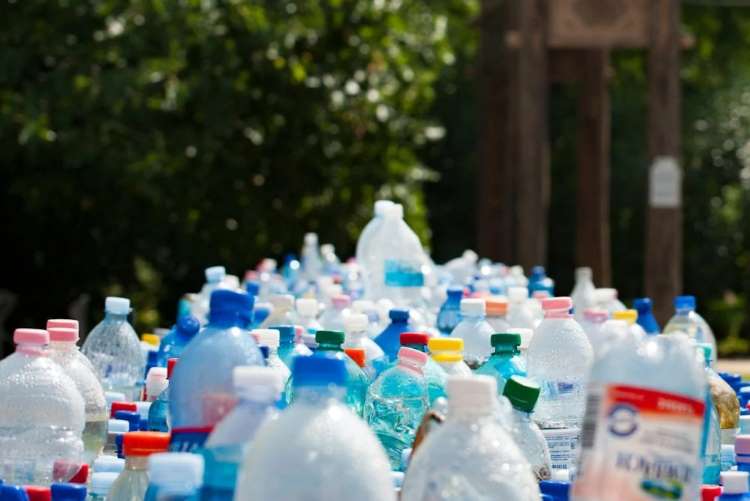
As delegates from 176 countries converge in Ottawa for the fourth session of the UN Environmental Programme’s intergovernmental negotiating committee, the stakes could not be higher. This week marks a critical juncture in the global effort to confront the plastic pollution crisis, an issue that threatens the ecosystems and human health alike.
The negotiations in Ottawa are set against a backdrop of alarming statistics. Since the 1950s, over seven billion tonnes of plastic have been produced globally, most of which now litters landfills, rivers, lakes, and oceans. This menace contributes significantly to the triple planetary crisis of climate change, biodiversity loss, and pollution, a grim reality highlighted by the fact that plastics account for approximately 3.4% of global emissions.
Beyond the environmental degradation, the pervasive spread of plastics also poses dire health risks. Microplastics, the tiny fragments resulting from the breakdown of larger plastic pieces, have permeated the most remote ecosystems and even the human food chain. Scientific studies reveal the presence of these particles in everything from drinking water to seafood, posing potential health risks ranging from hormonal disruptions to even more severe conditions. The negotiations must, therefore, also focus on the human health dimensions of plastic pollution, emphasising the need for global health guidelines in the treaty.
READ I Nestlé’s sugary baby food in developing nations expose double standards
From ecosystems to our plates
The Ottawa session, referred to as INC-4, is a pivotal moment in sculpting a future free of plastic waste. The draft treaty under discussion, honed over previous sessions in Uruguay, Paris, and Nairobi, reflects a growing consensus on the need for a robust, binding international framework that addresses plastic pollution across its entire lifecycle — from production to disposal.

The path to consensus is fraught with contention, primarily over whether to prioritise curbing plastic production or enhancing waste management. Industry lobbyists, particularly from the oil, gas, and petrochemical sectors, advocate the latter, viewing the burgeoning discourse on plastic reduction as a threat to their interests. In contrast, environmental groups and a core group of 60 nations push for ambitious targets, including a 60% reduction in plastic production by 2040, underlining the necessity to address the source of the problem rather than its symptoms.
The need for a transformative treaty is evident. A survey conducted in 2022 across 28 countries revealed that 75% of respondents support a ban on single-use plastics and favour an international treaty to tackle plastic pollution. This public sentiment is mirrored by the proactive stance of nations like Canada, part of the High Ambition Coalition to End Plastic Pollution, which aims to eradicate plastic pollution by the year 2040.
Economic cost of plastic pollution
The economic implications of unchecked plastic pollution are staggering, with the UN estimating potential annual financial risks to companies reaching $100 billion by 2040 due to required waste management expenditures. These economic pressures point to the necessity for a treaty that goes beyond environmental concerns to address the financial sustainability of plastic usage. A well-structured treaty could mitigate these risks by fostering innovations in sustainable materials and creating economic incentives for companies to adopt greener practices.
As negotiations unfold, the role of data cannot be overstated. The experience from climate agreements, like the Paris Agreement, teaches us that high-quality, real-economy data on plastic use is crucial. Such data empowers governments, businesses, and civil society to pinpoint where interventions are most needed and to track progress towards global commitments. Organisations like CDP have pioneered in this realm, pushing for mandatory corporate disclosure on plastics. This approach not only illuminates pathways for reduction but also holds corporations accountable for their environmental footprint.
Innovative technologies and solutions present another critical dimension of the treaty discussions. Advances in biodegradable plastics and enhanced recycling technologies offer promising pathways to reduce the reliance on traditional plastics. The treaty could catalyse these technological advancements by setting clear targets for incorporating sustainable materials and supporting research and development. Emphasising innovation within the treaty framework can thus bridge the gap between environmental goals and practical, achievable solutions.
In essence, the Ottawa negotiations could be a watershed moment for global environmental governance. It presents an opportunity to set a precedent similar to the Paris Agreement for plastics. By integrating stringent production limits, comprehensive waste management strategies, and robust data disclosure requirements into the treaty, the world can make substantial headway in mitigating plastic pollution.
As the delegates deliberate over the next week, the world watches and waits, hopeful that this session will mark a decisive step toward a sustainable, plastic-free future. The outcome of these talks could very well dictate the environmental legacy of our generation, emphasising the urgency of forging a comprehensive and binding global plastics treaty.
